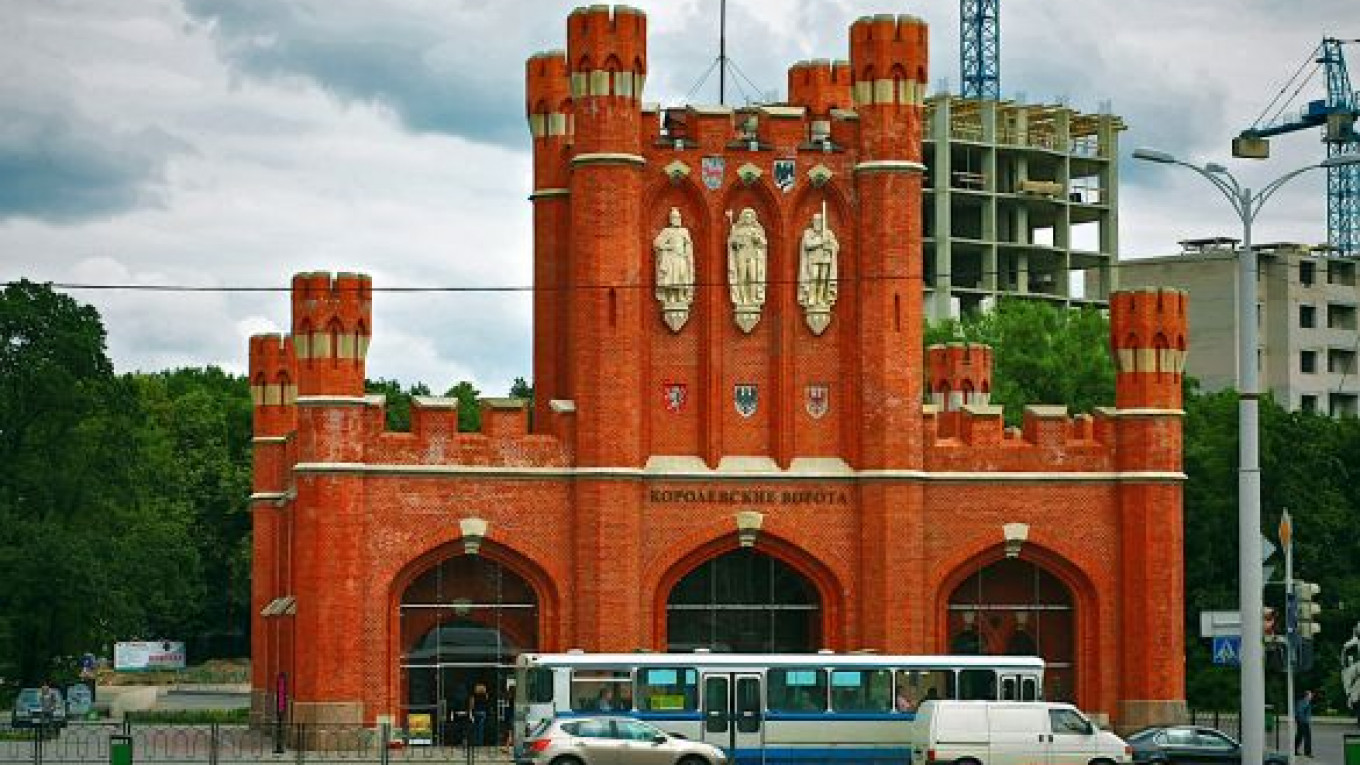Kaliningrad and Rostov-on-Don have spurted into the lead as the cities with the most advanced plans to prepare for the soccer World Cup in 2018, according to a Siemens estimate.
"My feeling is that the other host cities are on the stage of making decisions on many issues as yet," said Dmitry Fedorov, Siemens' director for major projects in Russia.
The cup matches will take place in 11 cities across the country.
Siemens could emerge as one of the largest contractors as the federal and regional governments, state-controlled corporations and private investors are preparing to dip in their pockets to bankroll construction of stadiums, power plants, electrical grids and airports — worth a total of 664 billion rubles ($20 billion). The federal coffers will provide half of the total spending.
In Kaliningrad, the authorities have investors signed up for most of the 14 hotels the city wants in place by 2018. Two more hotels in the city, which belonged to Germany under the name of Koenigsberg before World War II, will use the floorspace of two 19th-century German fortifications: Ravelin Haberberg and Bastion Grolman.
A company affiliated with Kabardino-Balkaria Republic President Arsen Kanokov, the new majority owner of the city's airport, began an upgrade of the gateway earlier this year, hiring Netherlands Airport Consultants and a Turkish construction firm for the work.
Developer Mostovik last month presented a tentative design of the stadium where some of the cup's matches will take place.
Compared to some other regional host cities, Kaliningrad might have to accommodate a greater number of foreign soccer fans because they could easily reach the country's westernmost city by car, said Ivan Andriyevsky, chairman of 2K Audit-Business Consultations.
In Rostov-on-Don, the regional authorities and billionaire Viktor Vekselberg are moving ahead with a plan to jointly build an airport from scratch, with construction to start next year. Regional Governor Vasily Golubev said recently that 11 investors came onboard to build hotels in the city.
A high demand for energy efficiency likely means that Western engineering giants like Siemens, General Electric and Alstom will bag most of the contracts to supply high-tech equipment and solutions in the big construction boom, Fedorov said.
These heavy hitters are already out in force scouting for opportunities.
"Competition is being felt rather sharply already at this time," Fedorov said. "On top of generating revenue, these are image-building projects, which can be later used for references."
In Brazil, Siemens won 1 billion euros worth of contracts as the country ploughed mountains of money into making sure it would not slip up as the host of the soccer World Cup next year. Supplies of turbines to generate electricity accounted for a lion's share of the business, said Markus Wischy, a senior solutions architect at Siemens's center for major projects.
Contracts in Russia will be coming from several directions. The Sports and Tourism Ministry will take care of financing to build the stadiums, Fedorov said. State-controlled corporations, such as Russian Grids, will hand out deals to supply energy equipment. Regional budgets could award contracts to improve transportation and the general look of the cities.
Fedorov is a former member of Russia's committee that bid for the country to host the Winter Olympics, scheduled for February next year. He said experience and the contacts he gained there come in handy in his current job.
Contact the author at medetsky@imedia.ru
A Message from The Moscow Times:
Dear readers,
We are facing unprecedented challenges. Russia's Prosecutor General's Office has designated The Moscow Times as an "undesirable" organization, criminalizing our work and putting our staff at risk of prosecution. This follows our earlier unjust labeling as a "foreign agent."
These actions are direct attempts to silence independent journalism in Russia. The authorities claim our work "discredits the decisions of the Russian leadership." We see things differently: we strive to provide accurate, unbiased reporting on Russia.
We, the journalists of The Moscow Times, refuse to be silenced. But to continue our work, we need your help.
Your support, no matter how small, makes a world of difference. If you can, please support us monthly starting from just $2. It's quick to set up, and every contribution makes a significant impact.
By supporting The Moscow Times, you're defending open, independent journalism in the face of repression. Thank you for standing with us.
Remind me later.






